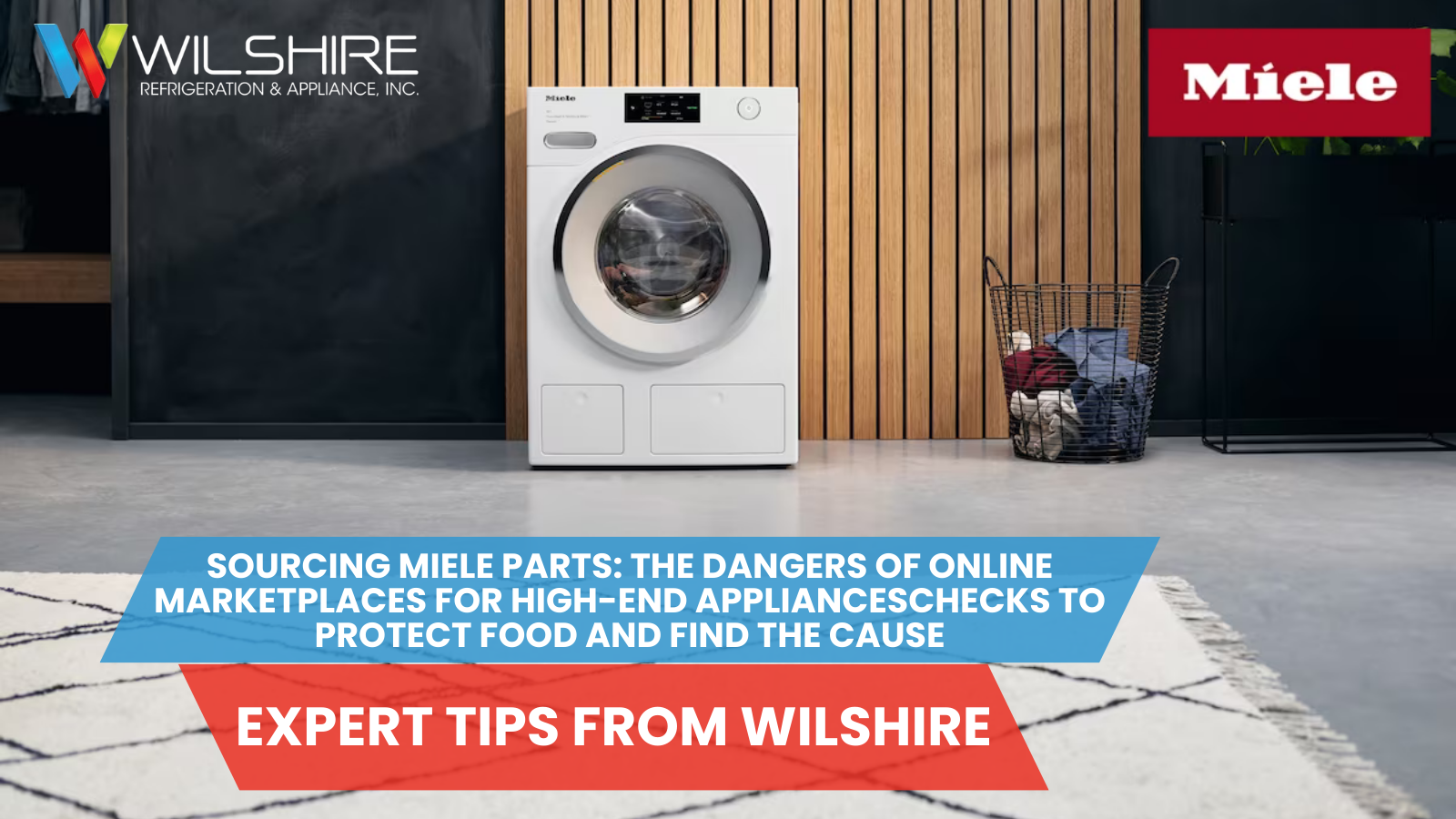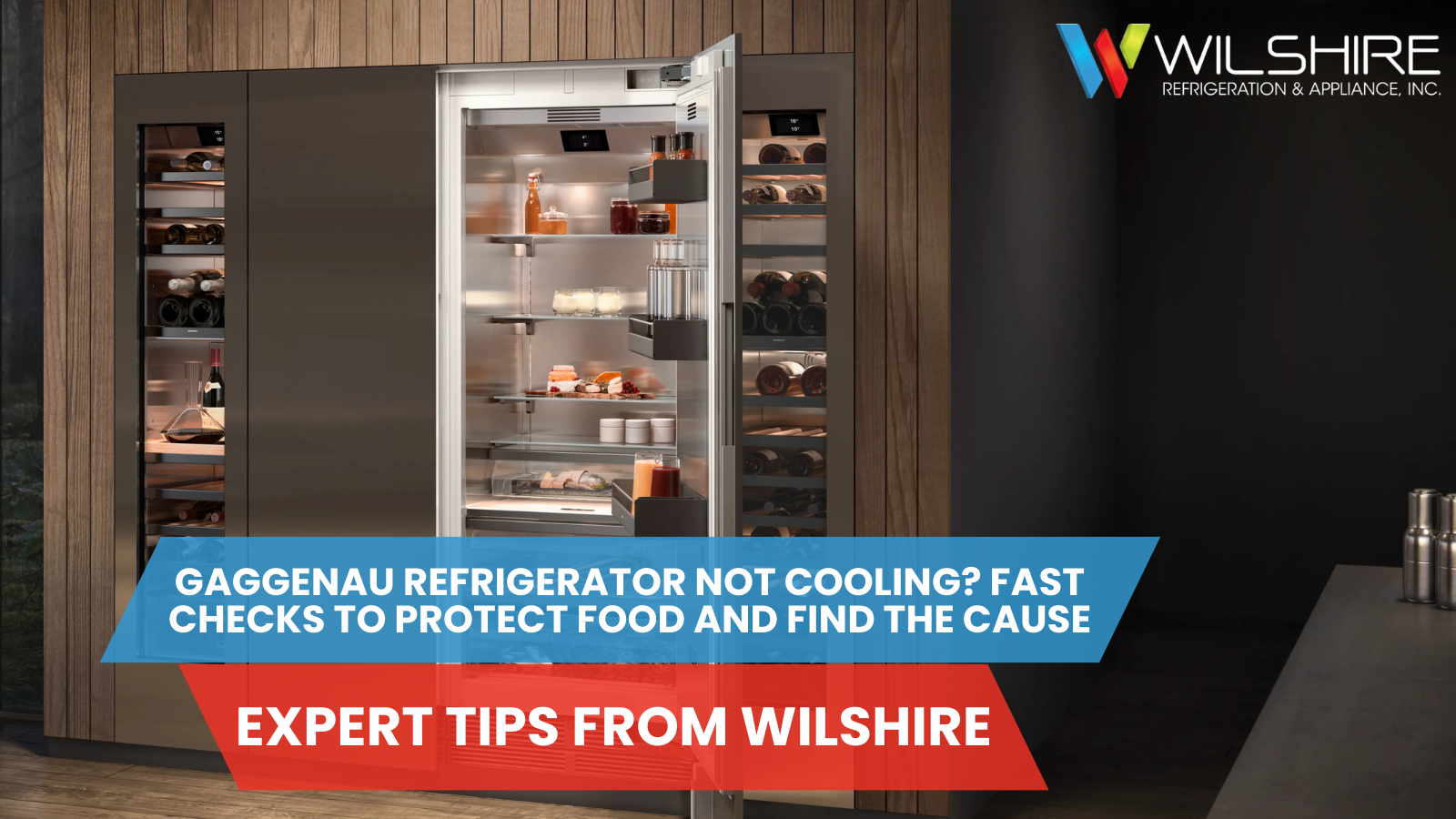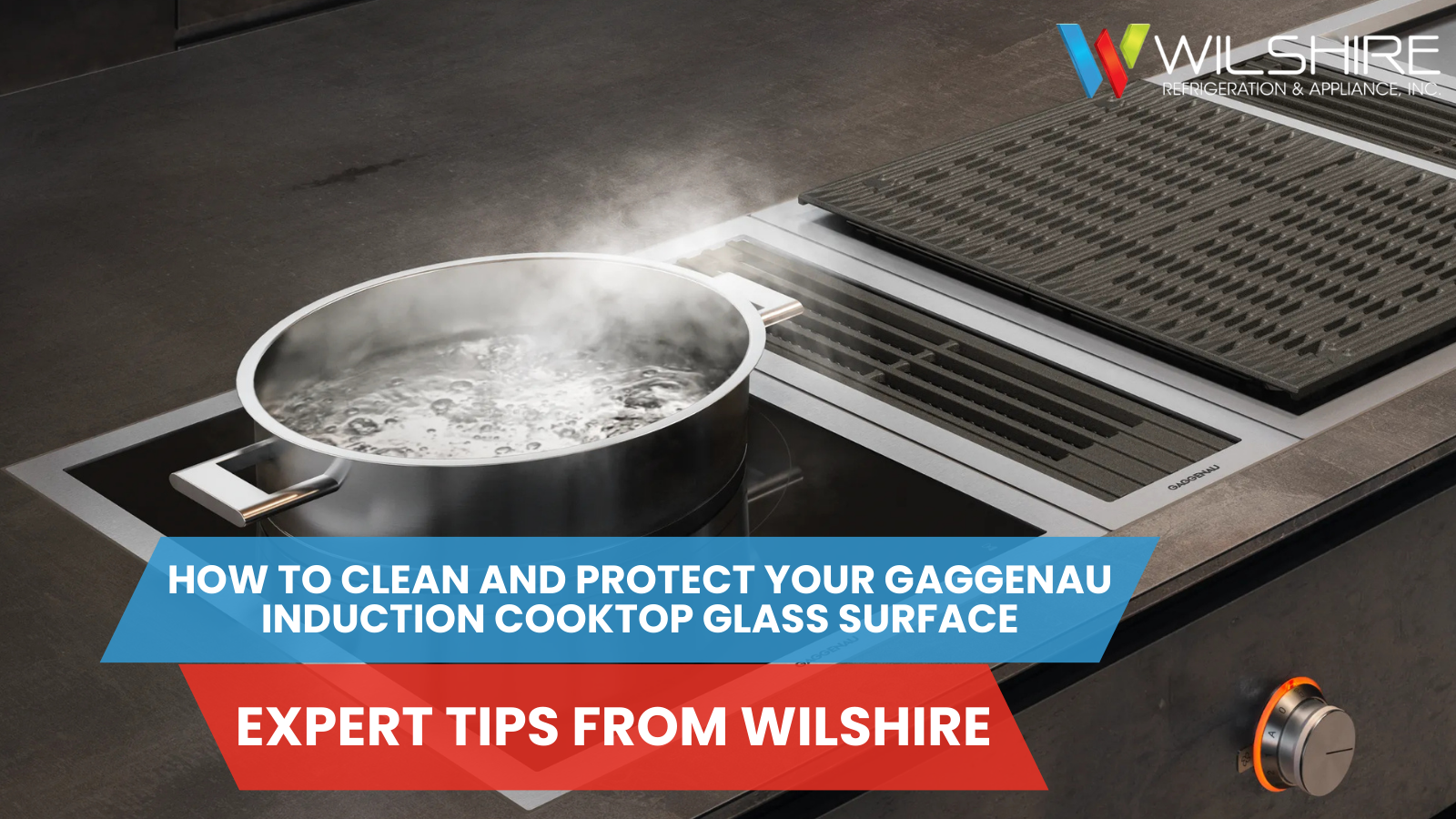Your freezer is supposed to be cold, but shouldn’t have frost. There are many causes for frost build-up. This can happen due to improper use or because of larger issues with the appliance. Ice build-up in your freezer can cause your refrigerator to work less efficiently. Continue reading to learn why ice and frost can build up, what to do about it, and ways you can prevent this from happening.
Causes of Freezer Frost Build-Up
If you notice frost build-up in your appliance and/or on your food, the reasons may include:
- The freezer door is open: Even if the door is slightly ajar, cold air can escape and warm air can enter. Additional moisture and humidity cause frost to form.
- Torn gasket: The gasket forms an airtight seal around the edge of the door. Gaskets tend to become brittle over time. If it is loose, worn, or otherwise not sealing properly, a damaged gasket should be replaced by a professional.
- Defrost sensor issue: The defrost sensor detects when any ice or frost forms, and responds by temporarily warming up the evaporator coils to melt it. It then returns to cooling mode to maintain the proper temperature. Check the sensor if nothing else seems to be causing your freezer to ice up.
- Ice maker issue: Sometimes, the ice dispenser chute door can be blocked by a piece of ice. When the chute doesn’t close properly, warm air can get inside and cause frost to form. Try dislodging the ice with a spoon. If this doesn’t work, and defrosting the freezer manually doesn’t help, contact a factory-certified appliance technician.
- The freezer is improperly filled: Cold food helps keep a freezer cold. Too few items can cause it to be warmer than normal; too many items can block airflow, which can lead to frost.
How to Prevent Frost Build-Up in Your Freezer
There are some simple ways you can prevent frost, which doesn’t always require freezer repair. The best ways to keep your freezer frost-free are to:
- Keep the door closed: You’ll keep your freezer airtight and the humidity out. This will also reduce the amount of work the appliance must do to keep items frozen.
- Organize your freezer: An organized freezer makes it easier to retrieve items quickly, so you keep the door open for less time. Your freezer shouldn’t be too empty or too full. Try to maintain one inch of space between food items and the interior walls, back, and ceiling of the freezer for optimal airflow.
- Don’t store warm or hot foods: Hot foods can release moisture and create higher humidity inside the freezer. Frost can then build up on the walls. Try cooling items off in the refrigerator first, and wipe food dry prior to storage.
- Clean the gasket/condenser: Dirt on the gasket can affect how well it seals, so wipe it down regularly. Cleaning the condenser helps it work more efficiently to keep your freezer cold.
- Use the right containers: Storage containers should be sized based on the food you store in them, and have extra room for air. Use freezer-friendly bags, which are thicker than standard sandwich bags, for items in your freezer.
Contact Wilshire Refrigeration
Wilshire Refrigeration is open during the coronavirus pandemic to help with Sub-Zero refrigerator repair. Contact us right away for professional refrigerator and freezer repair if any issues occur. We’re following all CDC guidelines for social distancing and equipment sanitation to ensure the safety of our customers and staff. This includes no contact appliance repair service. For appliance help in Los Angeles and Santa Barbara, Ventura, Orange, and Riverside Counties and throughout Southern California, or in Las Vegas, call 800-427-3653.




